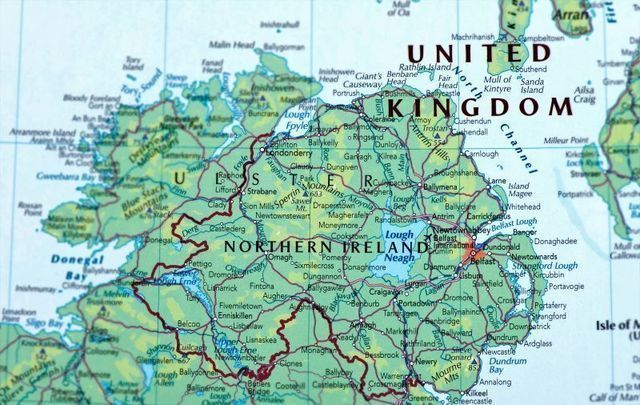Less than a third of respondents in Northern Ireland said they would support a United Ireland
A recent poll in Northern Ireland found that less than a third of respondents would support a United Ireland if a border poll was to be held the following day.
Read More: Unionists dispute over Sinn Féin-supported United Ireland referendum
The Belfast Telegraph reports that just 29 percent of the 2,000 people surveyed across Northern Ireland would back a United Ireland, 52 percent would choose to remain in the United Kingdom, and the remaining 19 percent don’t know or declined to answer.
The newly-released poll, considered Northern Ireland's largest general election face-to-face study, was carried out across 18 Westminster constituencies between December 28, 2019, and February 11, 2020.
The Liverpool University-led project was funded by the Economic and Social Research Council with interviews conducted by Social Market Research.
Regarding the identities of those who were surveyed, 35 percent of respondents identified as Irish, 34 percent said British, and 23 percent said Northern Irish.
Further, 28 percent identified as unionists, 25 percent said they were nationalists, and 40 percent said they were neither.
Party alliances were, not surprisingly, very telling in this poll. A total of 99 percent of DUP and UUP voters said they would want to remain in the UK, while 92 percent of Sinn Fein voters and 81 percent of SDLP voters indicated they would support Irish unity. 70 percent of Alliance voters said they support a United Ireland.
A majority of people in Northern Ireland would have to support a United Ireland for reunification to ever occur.
According to The Northern Ireland Act 1998, the Secretary of State for Northern Ireland "shall exercise the power [to hold a referendum] if at any time it appears likely to him that a majority of those voting would express a wish that Northern Ireland should cease to be part of the United Kingdom and form part of a united Ireland." Such referendums cannot take place within seven years of each other.
The poll was carried out before during and after Ireland’s recent General Election, during which the notion of a United Ireland gained renewed interest, especially when Sinn Fein called for a border poll referendum by 2025. The political party, for the first time ever, went on to secure the popular vote, winning about 24 percent of the overall vote.
The party’s leader, Mary Lou McDonald, was put forth as her party’s nomination for Taoiseach on February 20 in the first sitting of the 33rd Dáil Éireann after the election. While McDonald won more votes than the three other nominees, she failed to win the needed 80-vote majority to be named Taoiseach.
The results of the new poll come in stark contrast to a separate poll earlier in February that revealed some 80 percent of Irish people want a United Ireland, and 40 percent believing that they will see it happen within a decade.




Comments